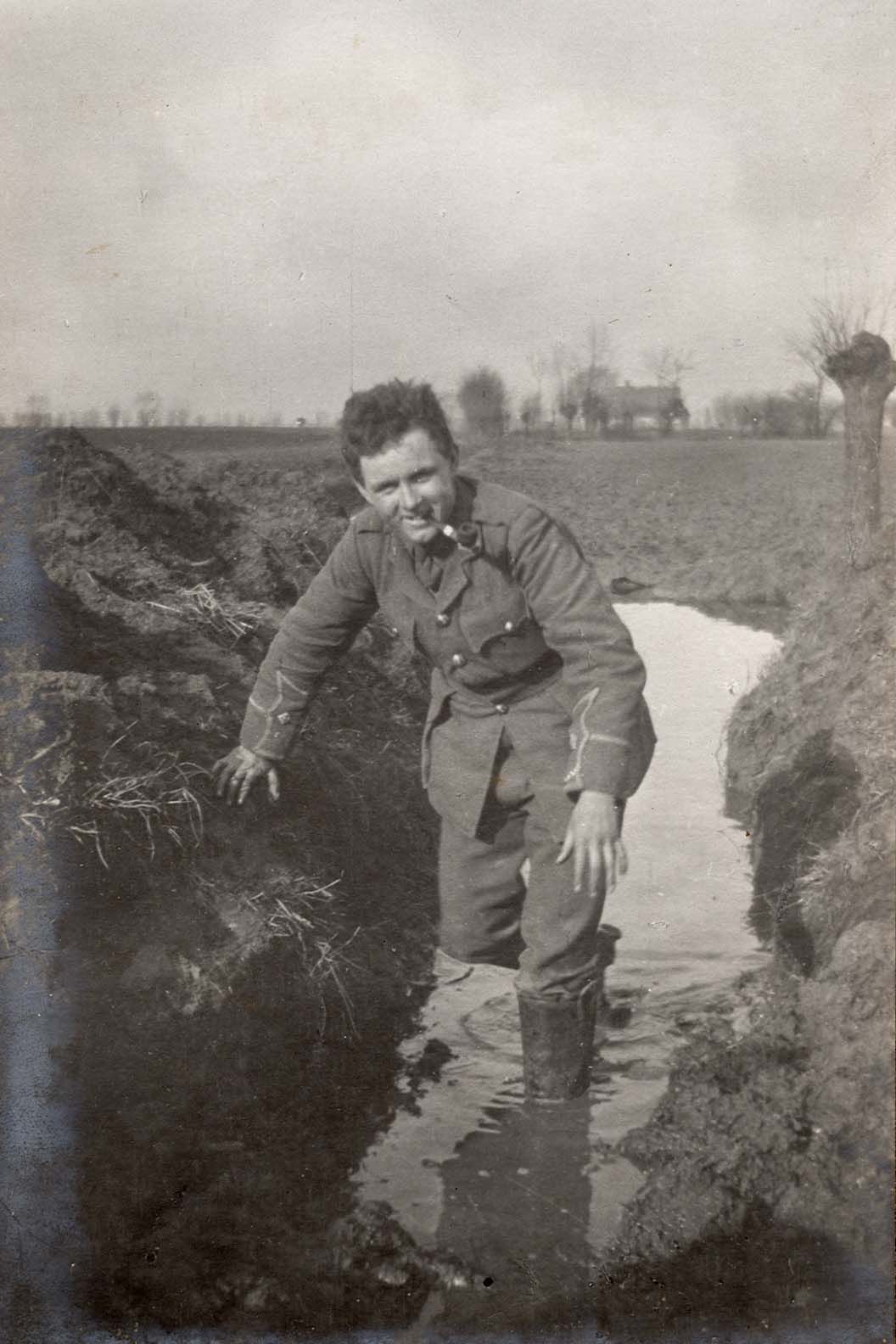
Gerald Francis Hadow was born in Scarborough in 1895, the son of Colonel A de S Hadow of the XIX Regiment of Foot (the Green Howards).
He was commisioned as a Second Lieutenant on 15th August 1914 and promoted to Lieutenant in March 1915. His first actions were at the battles of neuve Chapelle and Festubert. His death at Givenchy on 15th June 1915 was recorded at the time:
“He had reached the German barbed wire and finding he was practically alone, returned to his own trenches, which he reached untouched. Here he found his captain killed and all the other officers dead or wounded. His company went into action 180 strong and had 142 casualties. he returned to report to the C.O. and on the way, was struck on the head by a piece of shell. A captain under whom he served wrote; ‘I feel I have lost a young friend whom I had got to know and tested in perhaps the most severe time – war time – and he never failed. He was such a gallant little fellow and quite ready to die for the good cause.'”
Explore more memories from the ribbon
-
William John Blore
Submitted by Andrew Fynn. William John Blore was my Great Grandfather and was born in Leeds in 1877. He enlisted in the Yorkshire Regiment as a private in July 1894. His initial service was in India with the 2nd Battalion, during which his daughter Louisa Doris tragically died. More tragedy ensued in 1906 as his wife died after giving birth to his daughter Kathleen at Richmond. He did re-marry and seems to have left the army prior to 1909 when he was known to be a postman. As his military record is lost it’s unclear how he came to be back in service so we assume he must have volunteered and became part of the 6th Battalion, Yorkshire Regiment (the Green Howards) in August 1914 as Company Sergeant-Major. On 3 July 1915, the 6th Battalion sailed from Liverpool on board the Aquitania, bound for the Dardanelles campaign. On 6 August 1915, the 6th Battalion embarked for Gallipoli and the landing and attack at Suvla Bay. At 23.00 hrs, following the landing at Suvla Bay, he was part of the attack on Lala Baba Hill, the first ‘Kitchener unit’ to be involved in a major offensive operation of the war. The attack eventually cleared the hill of the Turks but not before they inflicted serious casualties on the attackers which, unfortunately, included William, only hours into his first action. His body wasn’t found in the aftermath of the action and he is commemorated at the Helles memorial. His role at Gallipoli…
-
Oliver H Ball
Photograph discovered in the archives of the Green Howards Museum by Stuart Hodgson, with information from Nottinghamshire County Council’s website. Second Lieutenant Oliver Ball was born in 1891 in Daybrook, Nottinghamshire. Both he and his brother, Walter were to die serving with the 10th Battalion, Yorkshire Regiment, which must have been a huge blow to his parents Alfred and Emma. After attending school in Nottingham where he joined the OTC, Oliver was employed at the Nottingham head office of the Union of London and Smith’s Bank. On 28th September 1916 the 10th Battalion were in the trenches near Fricourt consolidating the ground they had recently gained. German shells fell on the positions on a continuous basis. At about 8pm the shelling became much heavier ont the front line positions and as a result 2nd Lieut Oliver Ball was killed by shrapnel. He is buried at Guards’ Cemetery, Lesboeufs.
-
John Avery
John Avery was a miner and lived at Felling on Tyne, Co. Durham. He was married to Elizabeth Anne Speight. He was 29 years old when he enlisted at the outbreak of war and was initially posted to the 10th Battalion but subsequently served in the 11th and 8th. John suffered a gunshot wound to two fingers on his right hand in September 1915 and subsequently from the effects of gassing and shell shock. He was posted to the reserves in early 1917 and sent to work at Heworth Colliery, Felling on Tyne. Due to his wounds he was unable to work full weeks and he applied for a disability pension. He was granted 12 shillings and 6 pence a week to rise to 13/9d and subject to review after 48 weeks. He was awarded the 14/15 Star, the British War Medal , the Victory Medal and a Silver War Badge.
